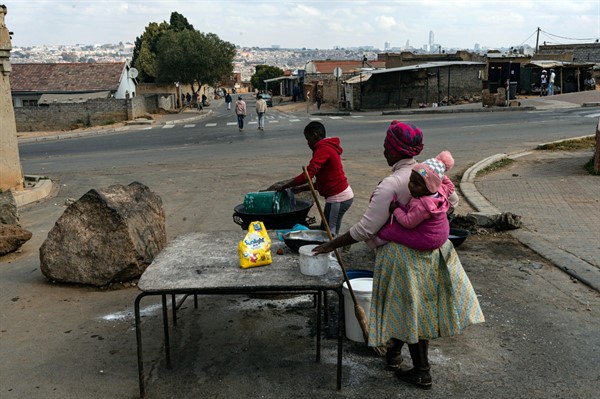Editor’s Note: This is the web version of our subscriber-only weekly newsletter, Africa Watch, which includes a look at the week’s top stories and best reads from and about the African continent. Subscribe to receive it by email every Friday. If you’re already a subscriber, adjust your newsletter settings to receive it directly to your email inbox.
South African civil society campaigners and social activists have long cautioned about the perils of the country’s extreme levels of economic inequality. Now the violent uprisings in parts of South Africa, initially triggered by the arrest of former President Jacob Zuma for his refusal to testify before an anti-graft commission, have snowballed into broader expressions of grievance over poverty, inequality and the government’s mishandled vaccination drive.
More than 100 people have died and more than 2,200 have been arrested in six days of unrest that has gripped parts of South Africa. Large crowds of people have been ransacking warehouses, malls and shopping centers in the economic hub of Johannesburg and the port city of Durban. President Cyril Ramaphosa has deployed 25,000 soldiers from the South African military to Gauteng and Kwazulu-Natal, Zuma’s home province, where the uprisings and subsequent looting began. Ramaphosa announced the deployment of the troops to assist the police, who have been largely outnumbered and left unable to manage the unfolding crisis. The president also warned that the protests and looting could further undermine the nation’s COVID-19 response and vaccination rollout, with several vaccine sites forced to stop administering doses due to the violence.

